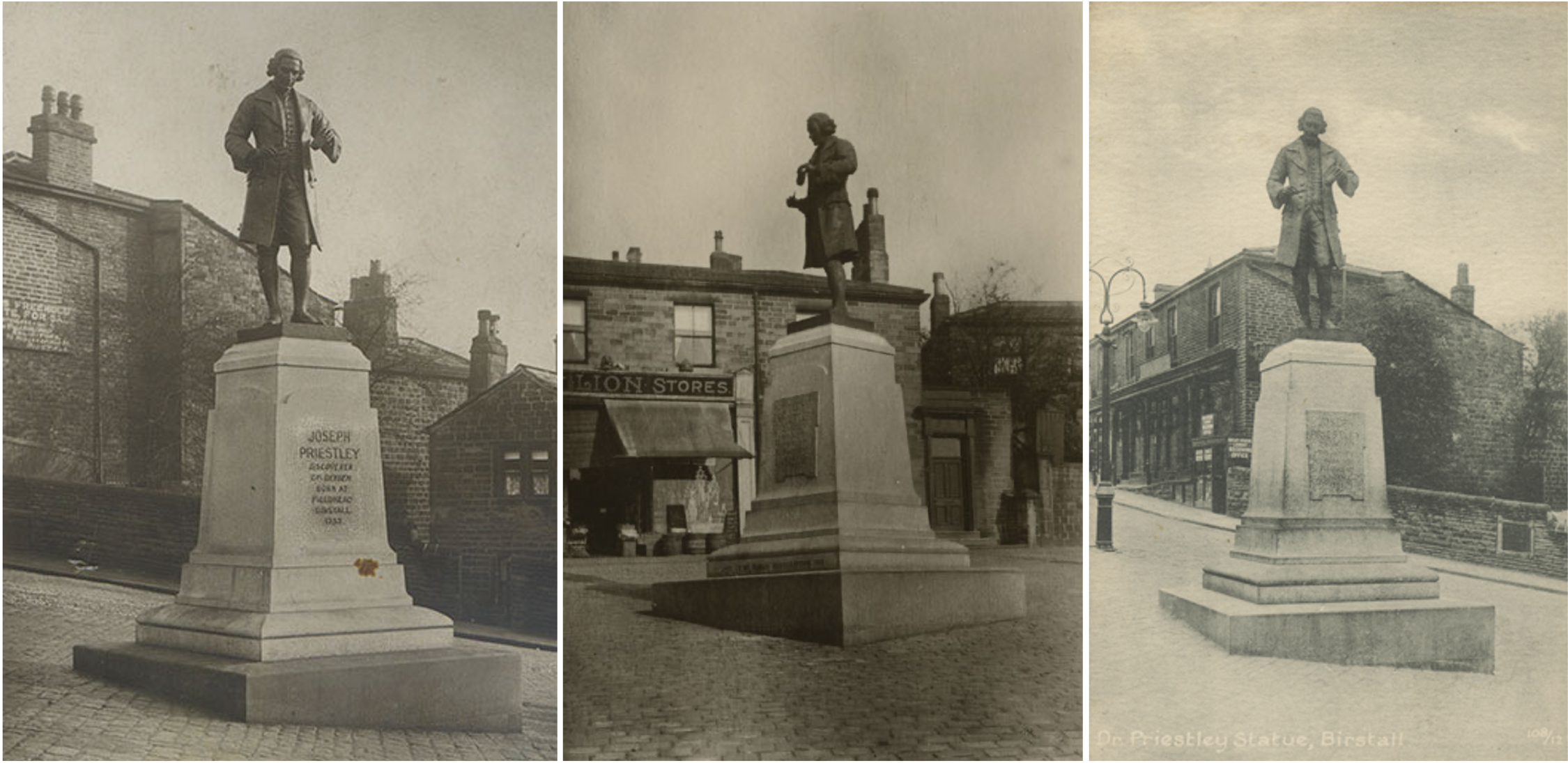Joseph Priestley

Joseph Priestley FRS (24 March 1733 – 6 February 1804) was an English chemist, natural philosopher, separatist theologian, grammarian, multi-subject educator, and liberal political theorist. He published over 150 works and worked in close association with Benjamin Franklin which involved wide ranging electricity experiments. Priestley is credited with his independent discovery of oxygen by the thermal decomposition of mercuric oxide. The Dr. Priestley Statue was erected by PublicSubscription and Unveiled by Sir Edward Thorpe on Oct 12th, 1912 to “a worthy son of Birstall”.

During his lifetime, Priestley’s considerable scientific reputation rested on his invention of carbonated water, his writings on electricity, and his discovery of several “airs” (gases), the most famous being what Priestley dubbed “dephlogisticated air” (oxygen). Priestley’s determination to defend phlogiston theory and to reject what would become the chemical revolution eventually left him isolated within the scientific community. Priestley’s science was integral to his theology, and he consistently tried to fuse Enlightenment rationalism with Christian theism.

A scholar and teacher throughout his life, Priestley made significant contributions to pedagogy, including the publication of a seminal work on English grammar and books on history; he prepared some of the most influential early timelines. The educational writings were among Priestley’s most popular works. Arguably his metaphysical works, however, had the most lasting influence, as now considered primary sources for utilitarianism by philosophers such as Jeremy Bentham, John Stuart Mill, and Herbert Spencer. The Dr. Priestley Statue was erected by Public Subscription and Unveiled by Sir Edward Thorpe on Oct 12th, 1912 to “a worthy son of Birstall.